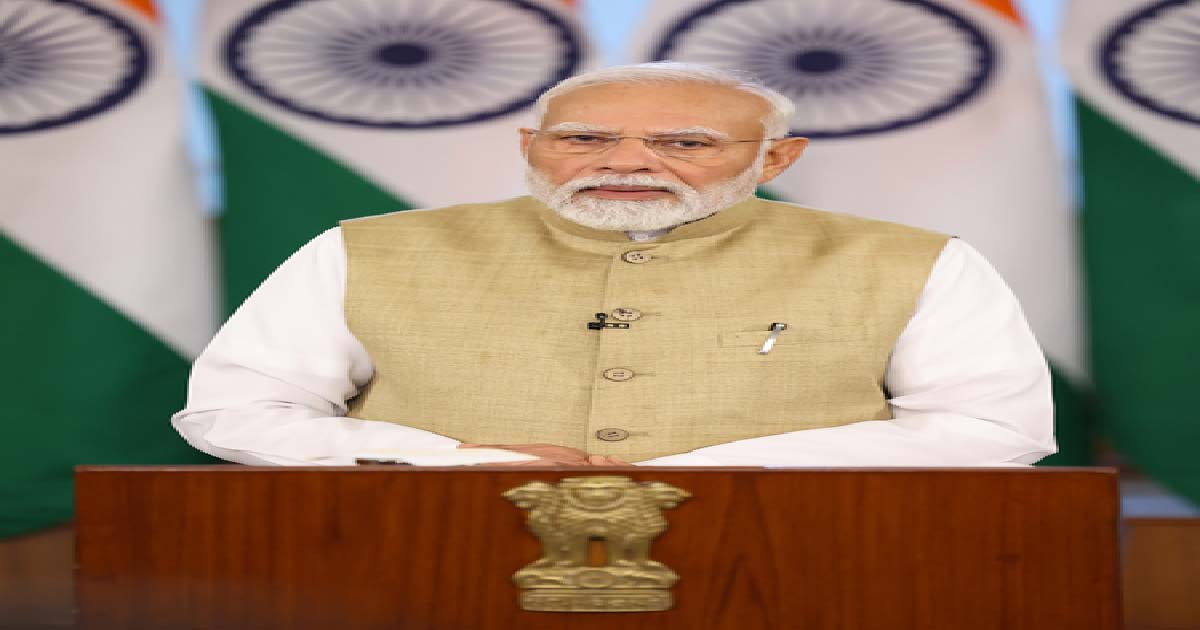Business
With vision to serve India, Reliance contributes Rs 1,185 cr as CSR in FY22

Diversified conglomerate Reliance Industries has contributed Rs 1,184.93 crore towards supporting a number of need-based and impactful Corporate Social Responsibility initiatives during the fiscal FY22.
The CSR initiatives were spearheaded by Reliance Foundation, the philanthropic arm of Reliance Industries, led by Founder and Chairperson of the foundation Nita M. Ambani.
The works included in areas such as rural transformation, health, education, disaster response along with sports for development initiatives.
Most importantly, its Covid-19 response to support the nation and the people, was rolled out through five missions, continued pivoted and intensified through the year, based on the urgent and emerging needs including Mission Oxygen and Mission Vaccine Suraksha.
The other missions, including Mission Anna Seva, Mission Covid Infra and Mission Employee Care, were strengthened and sustained, based on the emerging pandemic situation.
Through its wide range of initiatives, the foundation managed to reach out to over 5.75 crore people and served as many as 50,600 villages.
During the once in a century pandemic, it produced 1,000 tonne medical oxygen every day exclusively for patients, over 8.5 crore meals distributed among needy ones, over 1.4 crore reusable masks distributed, over 2,000 Covid care beds set up across various locations, provided Covid related advisories to over 44 people, over 27 lakh litre fuels dispensed for emergency response vehicles, among many others.
Providing crucial support to the nation to meet a sudden shortage of medical oxygen for Covid-19 patients, especially during the second wave, Reliance repurposed its factory in Jamnagar in record time to produce liquid medical oxygen. The infrastructure was ramped up to meet the life-saving needs of 100,000 patients on a daily basis, delivered free of cost to various states.
The Jamnagar facility contributed to 11 per cent of India’s total production of medical grade liquid oxygen. Even though Reliance was not a manufacturer of medical-grade liquid oxygen, it became India’s largest producer of this life-saving resource from a single location in order to stand with the country in its hour of need.
Besides, it enhanced India’s covid testing capabilities by developing its own confirmatory tests with 15,000+ daily testing capacity.
In education space, it had set up a Jio Institute Campus at Ulwe, Navi Mumbai, Maharashtra in about 52 acres, which will commence its academic sessions in 2022 itself.
Further, it reached 2.15 crore youth and children through different sports initiatives since the inception of the foundation.
Reliance Foundation scholarship athletes put up outstanding performances at national and international events, winning 28 medals in all. Athletes have their sights set on multiple international events including the Commonwealth and Asian Games. AI enabled technologies deployed to identify footballing talent.
Started in 2016, Reliance Foundation Youth Sports (RFYS) aims to lay a strong foundation for India’s sporting future through the development of sports in schools and colleges.
Further, it supported various other small-and-medium sized entrepreneurs in rural areas by holding their hands in making their endeavour success.
During cyclone Tauktae in 2021, which hit the Arabian Sea in the second week of May and affected the livelihoods of many by damaging property and infrastructure, Reliance Foundation Information Services, through its mobile audio services reached out to more than 435,000 people across states hit by the cyclone with information on heavy rainfall, high wind, high wave, thunderstorm and lightning, pre and post-cyclone cautionary measures on the management of agriculture, livestock and fisheries.
Business
New labour codes to boost formalisation, gender parity of India’s workforce: Industry leaders

New Delhi, Nov 22: India’s top industry bodies and staffing leaders on Saturday labelled the implementation of the Four Labour Codes a landmark step toward formalising the workforce, expanding social security, and aligning India’s labour framework with global standards.
The India Electronics & Semiconductor Association (IESA) said the reforms would significantly benefit the high-technology sectors by enhancing workforce stability, improving safety standards, and enabling labour flexibility with social protection.
“Mandatory appointment letters, universal minimum wages, and pan-India social security coverage (including ESIC expansion) ensure greater formalisation. This strengthens worker confidence — critical for skill-intensive manufacturing such as fabs, ATMP, component manufacturing and design centres,” said Ashok Chandak, President, IESA and SEMI India.
Provisions for fixed-term employment, faster dispute resolution, single licensing, and simplified compliance directly support the scaling of high-tech manufacturing clusters, the statement said.
Meanwhile, parity of benefits for Fixed-Term Employees (FTE) and expanded social security protections ensure a balanced, worker-centric ecosystem, he added.
Sachin Alug, CEO of NLB Services, a technology and digital talent provider, said the reforms were long overdue for India’s gig economy and will offer protection to a fast-growing but previously unorganised workforce.
The new laws are also expected to promote gender parity in the workforce by opening doors to wider opportunities across diverse sectors. Additionally, other groups such as”
He also pointed out that new laws will promote gender parity and contract workers, youth workers, and fixed-term employees will benefit from clearer working-hour norms, expanded social security, minimum wage protections, and health benefits.
“By simplifying compliance and unifying the regulatory framework, the codes can significantly expand formal employment, bringing millions of workers, especially in industries that rely on contract, temporary, and project-based roles, into the fold of structured, protected work,” said Balasubramanian A, Senior Vice President, TeamLease Services.
“National floor minimum wage creates a consistent benchmark across states and is an important step in India’s evolution from a minimum-wage economy to a living-wage economy,” he noted.
Suchita Dutta, Executive Director of Indian Staffing Federation (ISF), said the codes simplify compliance for employers, reduce regulatory burdens, and foster a more flexible hiring environment — crucial for the staffing industry, which has long advocated for such changes to unlock formal job creation.
The government, on November 21, implemented the Four Labour Codes — the Code on Wages (2019), Industrial Relations Code (2020), Code on Social Security (2020), and Occupational Safety, Health and Working Conditions (OSHWC) Code (2020) — repealing and rationalising 29 existing central labour laws.
Business
Nifty, Sensex continue rally for second week despite FII outflows

Mumbai, Nov 22: Indian equity benchmarks made marginal gains for the second week, supported by stronger second quarter (Q2) earnings, easing inflation and optimism around the India-US trade negotiations.
Benchmark indices Nifty and Sensex edged higher 0.68 and 0.50 per cent during the week to close at 26,068 and 85,231, respectively.
Analysts said that a moderation in FII selling due to expectations of earnings upgrades in H2 FY26 also supported the rally. However, markets turned volatile on Friday amid weak global cues. The Nifty fell after failing to cross its previous all-time highs of 26,277, ending its two-day advance.
Broader indices underperformed, with the Nifty Midcap100 and Smallcap100 ending the week down 0.76 per cent and 2.2 per cent, respectively.
Though IT stocks faced selling pressure due to weakness in the US tech shares, it was the biggest weekly gainer. Nifty Auto and Services followed as the secoral gainers during the week. On Friday, metals and realty were the worst hit, both dropping over 2 per cent, followed by PSU banks, financial services and media.
A better-than-expected non-farm payroll dimmed hopes of a US Federal Reserve rate cut in December putting pressure on global equities. Resultantly gold also witnessed selling pressure while INR declined to a new low.
The oil prices declined due to the US’s renewed push for a Russia-Ukraine peace proposal.
“The market may witness some profit booking in the near term if the pressure on Indian rupee persists. In the week ahead, investors will also have a close vigil on trade developments and economic data like IIP and Q2 FY26 GDP data to get the market direction,” said Vinod Nair, Head of Research, Geojit Investments Limited.
Analysts said that they expect markets to remain firm next week supported by buying on dips, improving demand outlook in Q3 and resilient flows.
Business
Four Labour Codes are most progressive reforms for workers since Independence: PM Modi

New Delhi, Nov 21: Prime Minister Narendra Modi on Friday said the government has given effect to the Four Labour Codes, which are one of the most comprehensive and progressive labour-oriented reforms since Independence.
“It greatly empowers our workers. It also significantly simplifies compliance and promotes Ease of Doing Business,” the Prime Minister remarked.
He said that these Codes will serve as a strong foundation for universal social security, minimum and timely payment of wages, safe workplaces and remunerative opportunities for our people, especially ‘Nari Shakti and Yuva Shakti’.
“It will build a future-ready ecosystem that protects the rights of workers and strengthens India’s economic growth. These reforms will boost job creation, drive productivity and accelerate our journey towards a Viksit Bharat,” he added.
The four labour codes include the Code on Wages, 2019, the Industrial Relations Code, 2020, the Code on Social Security, 2020 and the Occupational Safety, Health and Working Conditions Code, 2020, with effect from November 21, rationalising 29 existing labour laws.
With the implementation of the Labour Codes, it has now become mandatory for employers to issue appointment letters to all workers, which provides written proof to ensure transparency, job security, and fixed employment. Earlier, no mandatory appointment letters were required.
Under Code on Social Security, 2020, all workers, including gig and platform workers, will get social security coverage. All workers will get PF, ESIC, insurance, and other social security benefits. Earlier, there was only limited security coverage.
Under the Code on Wages, 2019, all workers will receive a statutory right minimum wage payment which wages and timely payment will ensure financial security. Earlier, minimum wages applied only to scheduled industries or employments; large sections of workers remained uncovered.
The Labour codes also ensure that employers must provide all workers above the age of 40 years with a free annual health check-up and promote a timely preventive healthcare culture. Earlier, there was no legal requirement for employers to provide free annual health check-ups to workers.
The codes also make it mandatory for employers to provide timely wages, to ensure financial stability, reducing work stress and boosting the overall morale of the workers. Earlier, there was no mandatory compliance for employers’ payment of wages.
The new law permits women to work at night and in all types of work across all establishments, subject to their consent and required safety measures. Women will also get equal opportunities to earn higher incomes in high-paying job roles. Earlier, women’s employment in night shifts and certain occupations was restricted.
The new codes also extend ESIC coverage and benefits pan-India – voluntary for establishments with fewer than 10 employees, and mandatory for establishments with even one employee engaged in hazardous processes.
Social protection coverage will be expanded to all workers. Earlier, ESIC coverage was limited to notified areas and specific industries; establishments with fewer than 10 employees were generally excluded, and hazardous-process units did not have uniform mandatory ESIC coverage across India.
The codes also ease the compliance burden for workers by providing for single registration, a PAN-India single license and a single return. Earlier, multiple registrations, licenses and returns across various labour laws were required.
-

 Crime3 years ago
Crime3 years agoClass 10 student jumps to death in Jaipur
-

 Maharashtra1 year ago
Maharashtra1 year agoMumbai Local Train Update: Central Railway’s New Timetable Comes Into Effect; Check Full List Of Revised Timings & Stations
-

 Maharashtra1 year ago
Maharashtra1 year agoMumbai To Go Toll-Free Tonight! Maharashtra Govt Announces Complete Toll Waiver For Light Motor Vehicles At All 5 Entry Points Of City
-

 Maharashtra1 year ago
Maharashtra1 year agoFalse photo of Imtiaz Jaleel’s rally, exposing the fooling conspiracy
-

 National News1 year ago
National News1 year agoMinistry of Railways rolls out Special Drive 4.0 with focus on digitisation, cleanliness, inclusiveness and grievance redressal
-

 Maharashtra1 year ago
Maharashtra1 year agoMaharashtra Elections 2024: Mumbai Metro & BEST Services Extended Till Midnight On Voting Day
-

 National News1 year ago
National News1 year agoJ&K: 4 Jawans Killed, 28 Injured After Bus Carrying BSF Personnel For Poll Duty Falls Into Gorge In Budgam; Terrifying Visuals Surface
-

 Crime1 year ago
Crime1 year agoBaba Siddique Murder: Mumbai Police Unable To Get Lawrence Bishnoi Custody Due To Home Ministry Order, Says Report


















